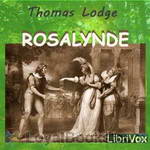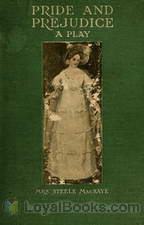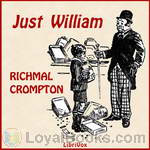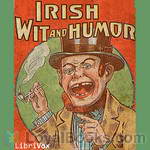|
Books Should Be Free Loyal Books Free Public Domain Audiobooks & eBook Downloads |
|
|
Books Should Be Free Loyal Books Free Public Domain Audiobooks & eBook Downloads |
|
Comedies |
|---|
|
Book type:
Sort by:
View by:
|
By: Richard Brinsley Sheridan (1751-1816) | |
|---|---|
 The Rivals
The Rivals
The play is set in Bath in the 18th century, a town legendary for conspicuous consumption and fashion at the time. Wealthy, fashionable people went there to "take the waters", which were believed to have healing properties. The plot centres on the two young lovers, Lydia and Jack. Lydia, who reads a lot of popular novels of the time, wants a purely romantic love affair. To court her, Jack pretends to be "Ensign Beverley", a poor officer. Lydia is enthralled with the idea of eloping with a poor soldier in spite of her guardian, Mrs... | |
 School For Scandal
School For Scandal
Richard Brinsley Sheridan's comedy was first performed in 1777 and focuses on the intrigues and scandals of the British upper classes. Lady Sneerwell wants to marry Charles Surface, while Joseph Surface wants to marry Maria, an heiress and ward of Sir Peter Teazle. Maria, however, prefers Charles over Joseph. In order to detach her from Charles, Lady Sneerwell and Joseph spread rumors about an affair between Charles and Lady Teazle, Sir Peter's new young wife. Meanwhile, Sir Oliver Surface, newly returned from the East Indies, assumes various disguises to test his nephews' characters. Misunderstandings, mistaken identities, gossip, and bad behavior abound in this uproarious comedy. | |
By: Aristophanes (446BC - 385BC) | |
|---|---|
 Lysistrata
Lysistrata
Lysistrata read by the Classics Drama Company at DePaul. The Classics Drama Company at DePaul is a new gathering of Thespians and Classicists dedicated to performing and understanding ancient literature. If you live in Chicago and attend DePaul University, we welcome new additions to our group. Contact Dr. Kirk Shellko (kshellko@depaul.edu), if interested.First performed in classical Athens c. 411 B.C.E., Aristophanes’ Lysistrata is the original battle of the sexes. One woman, Lysistrata, brings together the women of all Greece, exhorting them to withhold sexual contact from all men in order that they negotiate a treaty... | |
By: Alfred, Lord Tennyson (1809-1892) | |
|---|---|
 The Princess
The Princess
The Princess is a serio-comic blank verse narrative poem, written by Alfred Tennyson, published in 1847. The poem tells the story of an heroic princess who forswears the world of men and founds a women's university where men are forbidden to enter. The prince to whom she was betrothed in infancy enters the university with two friends, disguised as women students. They are discovered and flee, but eventually they fight a battle for the princess's hand. | |
By: Thomas Lodge | |
|---|---|
 Rosalynde or, Euphues' Golden Legacie
Rosalynde or, Euphues' Golden Legacie
This novel, which Shakespeare adapted in his pastoral comedy As You Like It, is the archetypal pastoral adventure. Two young persons of high birth, who have recently lost their fathers (one to death, one to banishment), fall in love but are separated almost at once and forced to flee to the Forest of Arden. There they meet again, but as Rosalynde is disguised for safety as a boy, named Ganymede, her lover Rosader does not recognize her. Once Rosader has confided his love to Ganymede, they play a game in which the "boy" poses as Rosalynde to give Rosader practice in wooing... | |
By: William Congreve (1670 -1729) | |
|---|---|
 The Way of the World
The Way of the World
The Way of the World is a play written by British playwright William Congreve. It premiered in 1700 in the theatre in Lincoln's Inn Fields in London. It is widely regarded as being one of the best Restoration comedies written and is still performed sporadically to this day.The play is based around the two lovers Mirabell and Millamant (originally famously played by John Verbruggen and Anne Bracegirdle). In order for the two to get married and receive Millamant's full dowry, Mirabell must receive the blessing of Millamant's aunt, Lady Wishfort... | |
By: Robert Copland (fl. 1515) | |
|---|---|
 Jyl of Breyntfords Testament
Jyl of Breyntfords Testament
Introduction - This is a collection of ten comic pieces from the 16th century and earlier, as compiled and edited by Frederick Furnivall for private circulation in 1871. Only the first is by Copland. (Introduction by Grant Hurlock) | |
By: William S. Gilbert (1836-1911) | |
|---|---|
 The Pirates of Penzance
The Pirates of Penzance
The Pirates of Penzance; or, The Slave of Duty is a comic opera in two acts, with music by Arthur Sullivan and libretto by W. S. Gilbert. The story concerns Frederic, who, having completed his 21st year, is released from his apprenticeship to a band of tender-hearted pirates. He meets Mabel, the daughter of Major-General Stanley, and the two young people fall instantly in love. Frederic finds out, however, that he was born on 29 February, and so, technically, he only has a birthday each leap year... | |
By: Alice Gerstenberg (1885-1972) | |
|---|---|
 Alice in Wonderland (Drama)
Alice in Wonderland (Drama)
A dramatization of Lewis Carroll’s Alice’s Adventures in Wonderland and Through the Looking Glass for the stage. In this version, Alice goes through the looking glass and encounters a variety of strange and wonderful creatures from favorite scenes of Alice's Adventures in Wonderland the Through the Looking Glass. Including a conversation with the Red and White Queens, encounters with Humpty Dumpty, the Mock Turtle, the Cheshire Cat, and the Caterpillar, and of course everyone's favorite Mad Tea Party. | |
By: Barry Pain (1864-1928) | |
|---|---|
 Marge Askinforit
Marge Askinforit
A rollicking parody of the Margot Asquith memoirs, in which Pain’s character, Marge, beguiles us with the most personal details of her dysfunctional family, and delights in relating every cringing, if not wholly accurate, minutiae of her exciting private life. | |
By: Mary Keith Medbery Mackaye (1845-1924) | |
|---|---|
 Pride and Prejudice: A Play
Pride and Prejudice: A Play
Pride and Prejudice, a comedy of manners and marriage, is the most famous of Jane Austen's novels. In this dramatic adaption by Mary Keith Medbery Macakaye some liberties are taken with the storyline and characters, but it is still a fun listen or read. Perhaps a good introduction for someone not ready to tackle the complete novel ~ and for the reader familiar with the work, a laugh can be had at the changes that were made in order to adapt it to the stage | |
By: Heywood Broun (1888-1939) | |
|---|---|
 Seeing Things at Night
Seeing Things at Night
This Book is a collection of humorous short stories which describe the comedy in everyday things and situations. | |
By: Jesse Lynch Williams (1871-1929) | |
|---|---|
 Why Marry?
Why Marry?
Why Marry? is a comedy, which "tells the truth about marriage". We find a family in the throes of proving the morality of marriage to a New Age Woman. Can the family defend marriage to this self-supporting girl? Will she be convinced that marriage is the ultimate sacredness of a relationship or will she hold to her perception that marriage is the basis of separating two lovers."Why Marry?" won the first Pulitzer Prize for Drama. | |
By: John Wight (1866-1944) | |
|---|---|
 Mornings at Bow Street
Mornings at Bow Street
This is a collection of various articles found in Morning Herald columns. Some are found interesting, some may be hilarious! The 84 pieces of this book are actual reports throughout the 1870s newspaper written by the reporter, John Wight and Illustrated by George Cruikshank | |
By: William Mountfort (1664-1692) | |
|---|---|
 Life and Death of Doctor Faustus Made into a Farce
Life and Death of Doctor Faustus Made into a Farce
| |
By: Unknown | |
|---|---|
 One-Act Play Collection
One-Act Play Collection
One-Act Play Collection includes 6 one-act plays in the public domain. | |
By: Richmal Crompton (1890-1969) | |
|---|---|
 Just William
Just William
William is a mischievous eleven year old who is puzzled by the adult world, which is no less puzzled by him. The humor is gentle and pleasing. The series of books is better known in the United Kingdom than in the U.S. ( | |
By: Emily Eden | |
|---|---|
 The Semi-Detached House
The Semi-Detached House
If you're a Jane Austen fan, you'll enjoy Emily Eden's comic novels of manners, The Semi-Detached House (1859) and The Semi-Attached Couple (1860). At the opening of The Semi-Detached House, the beautiful (but rather petulant) Lady Blanche Chester, newly married and pregnant, is being installed in a suburban house while her husband is away. Her encounters with her neighbors, and the intrigues of the neighborhood, soon come to absorb and annoy her. | |
By: Owen Wister (1860-1938) | |
|---|---|
 The New Swiss Family Robinson
The New Swiss Family Robinson
A parody of its famous predecessor, this short piece was written by Owen Wister for the Harvard Lampoon | |
By: Anonymous | |
|---|---|
 Irish Wit and Humor
Irish Wit and Humor
Excerpted anecdotes from the biographies of Swift, Curran, O'Leary and O'Connell, relating humorous snippets of politics in 18th and 19th century Ireland. For some these may be poignant in addition to being humorous and for others they may be humorous in addition to being poignant. ( | |
By: Herbert George Jenkins (1876-1923) | |
|---|---|
 The Return of Alfred
The Return of Alfred
The hero of the book is at a loose end, weary and bored of his old life after returning from the Great War. After an argument with his uncle and a railway strike he finds himself lost in the county of Norfolk at ten o’clock one night. When he seeks shelter in a country home, the butler immediately recognizes him as “Mr. Alfred”, the missing son of the house. From that point onwards, our hero, who gives his name as “James Smith”, finds himself in for an exciting time.Not only does he inherit the friends of “Mr... | |
By: Molière | |
|---|---|
 Tartuffe
Tartuffe
Jean-Baptiste Poquelin, known by his stage name Molière, was a French playwright and actor who is considered to be one of the greatest masters of comedy in Western literature. Among Molière's best-known works is Tartuffe or The Hypocrite, written in 1664. Though Tartuffe was received well by the public and even by Louis XIV, its popularity was lessened when the Archbishop of Paris issued an edict threatening excommunication for anyone who watched, performed in, or read the play.Tartuffe, a pious fraud who pretends to speak with divine authority, has insinuated himself into the household of Orgon... | |
By: Thomas Middleton and Thomas Dekker | |
|---|---|
 The Roaring Girl
The Roaring Girl
The Roaring Girl is a rip-roaring Jacobean comedy co-written by Thomas Middleton and Thomas Dekker and first published in 1611. The play is a fictionalized dramatization of the life of Mary Frith, known as "Moll Cutpurse", a woman who had gained a reputation as a virago in the early 17th century. (The term "roaring girl" was adapted from the slang term "roaring boy", which was applied to a young man who caroused publicly, brawled, and committed petty crimes.) The play combines the exploits of the cross-dressed Moll with the amorous adventures of a trio of merchants' wives, and the forbidden romance between Sebastian Wengrave and Mary Fitzallard. | |
By: Arthur Wing Pinero (1855-1934) | |
|---|---|
 The Amazons: A Farcical Romance
The Amazons: A Farcical Romance
This 1895 farce inspired by the outlandish idea of women wearing pants, centers around the predicament of the three daughters of the eccentric Marchioness of Castlejordan, who determined to have sons, raised them like boys. She encouraged them to dress and act like boys at home, yet dress like ladies when out. As the girls come of age, they are conflicted. They want to please mother by acting as her sons, but, suddenly smitten with three gentlemen, they are compelled to grow up and be ladies. When their suitors secretly come to woo, they aren’t sure what to do……and what will mother do if she finds out? | |
By: Cal Stewart (1856-1919) | |
|---|---|
 Uncle Josh's Punkin Centre Stories
Uncle Josh's Punkin Centre Stories
A collection of comedic short stories from the perspective of an old country man. | |
By: Moliere (1622-1673) | |
|---|---|
 The Imaginary Invalid
The Imaginary Invalid
The Imaginary Invalid is a three-act comédie-ballet by the French playwright Molière. It was first performed in 1673 and was the last work he wrote. The plot centers around Argan, the 'imaginary invalid' who is completely dependent on his doctors and wants to marry his daughter to a doctor against her will, so that he will always have medical care freely available to him. In an ironic twist of fate, Molière collapsed during his fourth performance as Argan on 17 February and died soon after. | |
By: Molière (1622-1673) | |
|---|---|
 Miser
Miser
The Miser is a comedy of manners about a rich moneylender named Harpagon. His feisty children long to escape from his penny-pinching household and marry their respective lovers. Although the 17th-century French upper classes presumably objected to the play's message, it is less savage and somewhat less realistic than Molière's earlier play, Tartuffe, which attracted a storm of criticism on its first performance. | |
By: Henry Fielding | |
|---|---|
 The Old Debauchees
The Old Debauchees
Young Laroon plans to marry Isabel, but Father Martin manipulates Isabel's father, Jourdain, in order to seduce Isabel. However, other characters, including both of the Laroons, try to manipulate Jourdain for their own ends; they accomplish it through disguising themselves as priests and using his guilt to convince him of what they say. As Father Martin pursues Isabel, she is clever enough to realize what is happening and plans her own trap. After catching him and exposing his lust, Father Martin is set to be punished. | |
By: John Fletcher (1579-1625) | |
|---|---|
 The Woman's Prize, or The Tamer Tamed
The Woman's Prize, or The Tamer Tamed
John Fletcher's comedy (probably written and performed around 1611) is a sequel to Shakespeare's The Taming of the Shrew, in which, as the title suggests, the tamer will be tamed. Petruchio, the shrew-tamer, has been widowed, and marries a second wife, Maria, a "chaste witty lady." At the instigation of her cousin Bianca, and with the fellowship of her sister Livia, Maria decides to go on strike for equal rights, refusing to behave as a proper 17th century wife. Fletcher's play addresses the issue of men and women's roles within marriage, a controversial issue for his day. | |
By: Aristophanes (446-389 BCE) | |
|---|---|
 Frogs
Frogs
Athens is in a sorry state of affairs. The great tragedian, Euripides, is dead, and Dionysus, the god of the theater, has to listen to third-rate poetry. So, he determines to pack his belongings onto his trusty slave, Xanthias, and journey to the underworld to bring back Euripides! Hi-jinks ensue. | |
 Clouds
Clouds
Strepsiades is an Athenian burdened with debt from a bad marriage and a spendthrift son. He resolves to go to the Thinking Shop, where he can purchase lessons from the famous Socrates in ways to manipulate language in order to outwit his creditors in court. Socrates, represented as a cunning, manipulative, irreverent sophist, has little success with the dull-witted Strepsiades, but is able to teach the old man's son Phidippides a few tricks. In the end, the play is a cynical, clever commentary on Old Ways vs. New Ways, to the disparagement of the former. | |
By: William Shakespeare (1554-1616) | |
|---|---|
 Two Noble Kinsmen
Two Noble Kinsmen
The Two Noble Kinsmen is a Jacobean tragicomedy co-written by William Shakespeare and John Fletcher, first published in 1634. Set in ancient Greece during a war between Athens and Thebes, the narrative follows the title characters, Palamon and Arcite, noble youths whose friendship is destroyed by their mutual love for the beautiful Emilia. The subplot deals with the love and eventual madness of the Gaoler's Daughter, who falls hopelessly in love with Palamon. The play is based on "The Knight's Tale" by Chaucer, but also has echoes of Shakespeare's A Midsummer Night's Dream, as two of the major characters are Theseus and Hippolyta, who also appear in the earlier play. | |